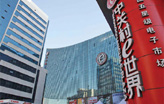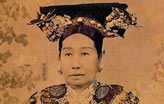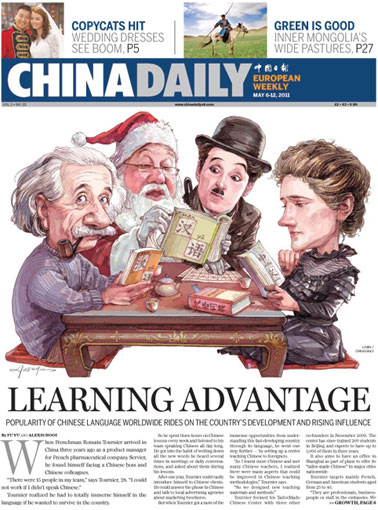Society
Coca-Cola savors 125th anniversary
Updated: 2011-05-08 07:36
By Zhang Yuwei (China Daily)
ATLANTA, Georgia - On May 8, 125 years ago, when John Pemberton poured the first cup of Coca Cola in Jacob's Pharmacy just a few blocks away from the current Coca-Cola headquarters in Atlanta, Georgia, the inventor of the carbonated drink probably never imagined it would become a beverage shared by people from over 200 countries today.
In 1978, The Coca-Cola Company was selected as the only company that was allowed to sell packaged cold drinks in China. So far, the company has invested more than $1.3 billion in the Chinese market with additional $2 billion planned to invest in 2008.
In China, it employs more than 30,000 people, with over 40 bottling plants.
Shaun Rein, managing director of China Market Research Group in Shanghai, said Coca-Cola has done well in penetrating nearly every corner of the Chinese market.
"However, it is going to have to launch more China-focused drinks or acquire local brands in order to continue to grow fast," Rein said.
Others think Coca-Cola will continue to grow in the Chinese market because it knows how to expand locally.
Julian Chang, executive director of Asia Programs of the Ash Center which is part of the Harvard Kennedy School thinks the company's strength has been to be sensitive to local market needs - "think local, act local".
"As a company, they can move quickly (witness the New Coke/Coke Classic episode in the US) to respond to local conditions, look at the success of Minute Maid Pulpy in China." Minute Maid is a subsidiary of Coca-Cola.
Minute Maid Pulpy was introduced in China in 2005, and it reached $1 billion in global retail sales in just five years. It is the company's first brand that was developed and launched in an emerging market that has reached the billion-dollar mark. The brand is now among the premier juice drink brands in more than 15 countries including Indonesia, Philippines, Thailand and India.
Coca-Cola's international presence has been growing rapidly and it believes in emerging markets, not only BRICS (Brazil, Russia, India, China, and South Africa) but other emerging markets like Indonesia, Turkey, Morocco, and Vietnam.
Its executives say that they expect 60 percent of the new growth from emerging markets.
Coca-Cola believes China - its third largest market after the United States and Mexico - has the greatest potential globally.
Muhtar Kent, CEO of Coca-Cola, has confidence in emerging markets like China and he thinks the company's long-term plan in China is on the right track.
The company's sales for 2010 in China rose 6 percent, though falling 3 percent in the fourth quarter against the same period last year.
But Kent is happy with the projections about the Chinese market, which moved from fourth to the No 3 market for Coke. He said he cannot predict when China may become the largest market for Coca-Cola, but it will happen.
China's soft drinks market has maintained double-digit growth for over 10 years; however, some experts predict will see slower growth in the coming years, because of increasing market saturation. But the ongoing double-digit growth shows that China's soft drinks market is still one of the most dynamic in the world.
John Farrell, vice president in strategic planning at Coca-Cola, however, is positive about the Chinese market.
Annual per-capita consumption of Coca-Cola drinks in China was the equivalent of 34 8-ounce bottles in 2010, said Farrell, adding that it still has room to growth.
In 2010, sales of soft drinks, including soda, juice and bottled water, almost doubled over five years to 270 billion yuan ($42 billion) in China, according to Euromonitor International, a market research firm. At the end of the year, Coca-Cola had 17 percent of the market share while Tianjin-based food producer and distributor Tingyi controlled 13 percent. Hangzhou-based food and beverages brand Wahaha had a 7 percent share, while PepsiCo Inc. was fourth with 6 percent.
Farrell recognizes the competition in the Chinese market but he doesn't see it negatively.
"The great thing about China is it has a lot of competition, which helps create the industry. When you are building non-alcoholic ready- to-drink beverages, which is commercial beverages, the more competition you have, the better, as far as developing industry growth," said Farrell.
Rein thinks Coca-Cola should catch up on localizing its products more.
"Chinese generally are more concerned about health than Westerners and prefer tea-based products," Rein said.
"Going forward, the trend is away from carbonated beverages and more towards fruit juices, herbal teas and other drinks consumers feel are healthier. Coke needs to get into this market if it wants to continue to grow fast."
E-paper

War of the roses
European Chinese rose growers are beating their Chinese rivals at their own game
High-tech park gets big boost
At the source
Merchant of Venice
Specials

High-tech park gets big boost
Zhongguancun sets sights on being one of the top technology hubs in the world

Learning to close the gap
Thousands of students have benefited from Tibet middle school program set up outside the autonomous region

The Cixi story
Two books about the Empress Dowager cast new light on the iconic ruler.
